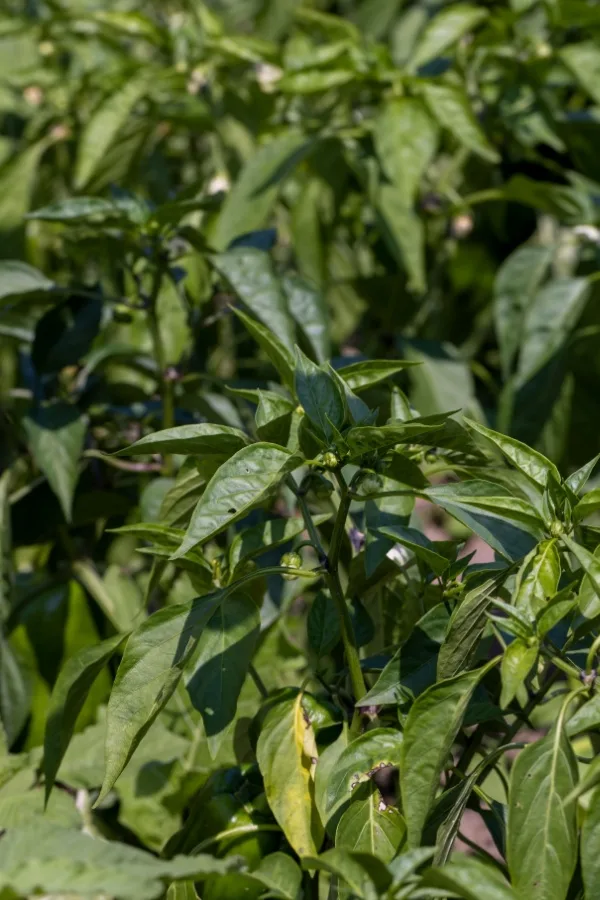Explore the Best Fertilizers for Peppers and Enhance Your Yard's Yield
Explore the Best Fertilizers for Peppers and Enhance Your Yard's Yield
Blog Article
The Ultimate Overview to Feeding Peppers: Enhancing Growth and Flavor Normally
As pepper fanatics seek to grow robust plants producing savory fruits, the role of fertilization comes to be paramount in accomplishing these goals. By discovering the benefits of natural plant foods, unlocking the tricks behind pepper plant nutrient needs, and diving right into the realm of organic plant food choices, a globe of opportunities arises for enhancing the vitality and flavor profile of these precious plants.
Advantages of All-natural Fertilizers
Natural plant foods offer an array of benefits that contribute to the general health and performance of pepper plants. By enriching the dirt with organic matter, such as garden compost or manure, all-natural plant foods improve its water retention capacity and nutrient-holding abilities, producing an extra hospitable setting for pepper plants to thrive in.
Additionally, all-natural fertilizers support a diverse and energetic dirt microbiome, cultivating useful microbial task that helps in nutrient recycling and uptake by the plants. This microbial task can aid subdue damaging microorganisms and conditions, minimizing the requirement for chemical treatments. Furthermore, all-natural fertilizers promote long-lasting dirt health and wellness by keeping a well balanced ecosystem underground, which in turn supports the general health and resilience of pepper plants over ground.
Comprehending Pepper Plant Nutrient Requirements
Having developed the benefits of natural fertilizers in improving soil wellness and advertising microbial task, the emphasis now shifts to recognizing the particular nutrient needs crucial for ideal development and taste in pepper plants.

Comprehending the certain nutrient demands of pepper plants is essential for achieving abundant harvests with excellent taste. By supplying the right balance of nutrients with organic plant foods or soil amendments, cultivators can make certain healthy and balanced, energetic plants that create flavorful peppers throughout the expanding period.
Organic Plant Food Options for Peppers
In improving the growth and flavor of pepper plants, selecting the proper natural fertilizers is a critical factor to consider. Organic plant foods provide a lasting and all-natural way to nurture pepper plants without introducing dangerous chemicals to the dirt and setting. One popular choice is compost, which enriches the soil with necessary nutrients and enhances its framework, promoting healthy root development and overall plant development. Additionally, garden compost aids keep dampness in the soil, decreasing water stress on pepper plants during heat.
Another effective organic fertilizer for peppers is aged manure. Rich in nitrogen, potassium, and phosphorus, aged manure provides a balanced nutrient mix that supports vigorous growth and plentiful fruit manufacturing (best fertilizers for peppers). It is necessary to utilize well-aged manure to avoid burning the plants with excess ammonia
Fish solution is a fast-acting organic plant food that provides pepper plants with a quick increase of nutrients. Stemmed you could check here from fish waste, this fertilizer is high in nitrogen, making it particularly beneficial throughout the early phases of pepper plant development. Fish solution is easy to apply and is conveniently absorbed by the plants, promoting healthy vegetation and strong root development.
When picking an organic fertilizer for peppers, consider the details nutrient requirements of your straight from the source plants and choose options that straighten with your horticulture techniques and values.
Best Practices for Fertilizing Pepper Plant Kingdoms
Thinking about the value of picking proper organic plant foods for pepper plants, carrying out ideal practices for fertilization is important to make certain optimal growth and flavor advancement. It is also important to feed pepper plants at the ideal time, commonly prior to planting and during vital development phases such as flowering and fruit development.
An additional critical method is to prevent over-fertilization, as this can bring about vitamins and mineral discrepancies, stunted growth, or perhaps plant damages (best fertilizers for peppers). Following recommended dosage instructions and not exceeding them is vital for the overall health and wellness of the pepper plants. Additionally, integrating natural matter into the dirt through compost or mulching can assist boost dirt framework, water retention, and vitamins and mineral schedule, promoting much healthier pepper plants with boosted flavor accounts. By sticking to these ideal methods, you can properly nurture your pepper plants and achieve plentiful harvests with exceptional taste and high quality.
Troubleshooting Common Fertilizing Issues
:strip_icc()/BHG-Growing-Peppers-Indoors-EzgaEnB7KML9Ym_plkvuxK-9398f1341d86483083862533ae7622db.jpg)
pH inequality is another concern that can impact nutrient uptake in pepper plants. When the soil pH is also low or also high, particular nutrients come to be not available to the plants. Regularly testing the dirt pH and making adjustments utilizing natural changes can help preserve an appropriate pH degree for ideal plant growth. Visit Website Finally, inconsistent fertilizing methods can result in unequal growth and fruit growth. Developing a normal fertilizing timetable and complying with suggested application rates can assist prevent this concern and make certain healthy and balanced pepper plants throughout the growing season.
Conclusion
By understanding the nutrient demands of pepper plants and picking natural plant food alternatives, gardeners can successfully promote strenuous and healthy development. Adhering to ideal methods for fertilizing pepper plants and repairing usual fertilization problems can aid guarantee effective growing of peppers.
By exploring the advantages of natural fertilizers, unlocking the tricks behind pepper plant nutrient requires, and diving right into the world of organic plant food options, a globe of possibilities emerges for enhancing the vigor and taste profile of these cherished plants.Fish solution is a fast-acting organic plant food that supplies pepper plants with a fast boost of nutrients. It is likewise essential to fertilize pepper plants at the right time, commonly before planting and throughout essential growth phases such as flowering and fruit development.
By recognizing the nutrient demands of pepper plants and choosing organic fertilizer alternatives, gardeners can efficiently advertise healthy and balanced and vigorous growth. Following ideal techniques for fertilizing pepper plants and troubleshooting usual fertilization problems can aid make certain effective cultivation of peppers.
Report this page